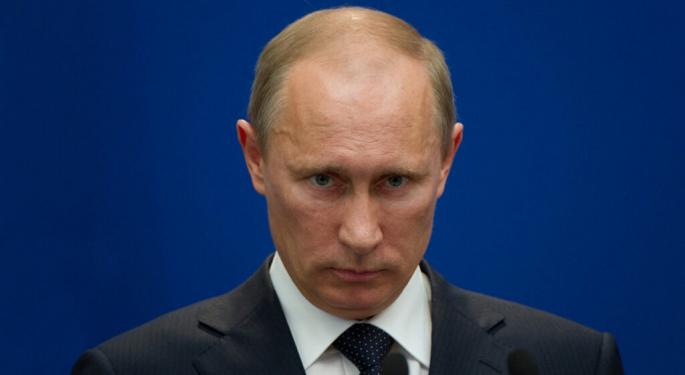Vladimir Putin Said 'Nobody Can Ban Bitcoin'—Now Russia Reportedly Leverages BTC To Evade Sanctions When Selling Oil To China, India
Russia has started employing cryptocurrencies such as Bitcoin (CRYPTO: BTC) and Ethereum (CRYPTO: ETH) to manage a growing segment of its oil transactions with China and India, sidestepping Western sanctions, according to a Reuters report.
These deals, handled through middlemen, convert local currencies like yuan and rupees into rubles, with stablecoins such as USDT also playing a role, though their centralized issuer, Tether (CRYPTO: USDT), can halt funds under regulatory scrutiny.
One insider linked to a Russian oil firm reported that crypto-based sales to China reach several tens of millions of dollars monthly.
This shift began in December after Russia adjusted its legal framework to allow cryptocurrency use in cross-border payments, a strategy Finance Minister Anton Siluanov described as a response to trade disruptions from sanctions imposed after the Ukraine conflict, prompting banks to avoid Russia-related dealings.
In September, Chainalysis highlighted the central bank's push to develop crypto systems to dodge these restrictions, with this being the first documented instance of digital currencies in Russia's $192 billion yearly oil sector.
Also Read: Trump-Backed World Liberty Financial Raises $590M In Token Sales
Official Anton Gorelkin recently remarked that sanctions cannot fully block crypto access, noting its effectiveness as a workaround, especially after the EU added sanctions to the Russian exchange Garantex, already targeted by the U.S. since 2022.
This week, the central bank launched a three-year trial permitting accredited investors—those with investments exceeding 100 million rubles ($11.5 million) or income over 50 million rubles annually—to engage in crypto trading, though domestic payments remain prohibited with penalties for non-compliance.
In November, the Federation Council, with Vladmir Putin's approval, enacted a tax measure on crypto trades and mining, setting rates at 13% for earnings up to 2.4 million rubles and 15% above that, while excluding crypto from value-added tax.
Putin also approved mining legalization last year, mandating registration, though some areas restrict it due to energy use.
The central bank is also preparing to introduce the digital ruble in stages this year.
Countries like Iran and Venezuela have similarly adopted crypto for trade, with Venezuela ramping up oil exports via digital means after recent U.S. sanctions.
Read Next:
Image: Shutterstock
© 2025 Benzinga.com. Benzinga does not provide investment advice. All rights reserved.
Posted-In: AI Generated Russia Vladmir PutinCryptocurrency News Top Stories



